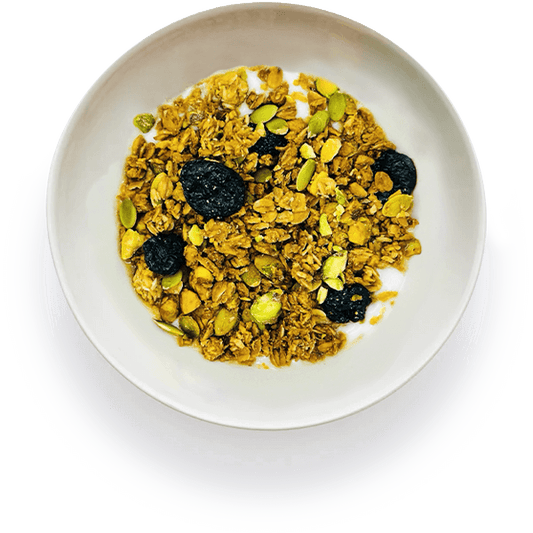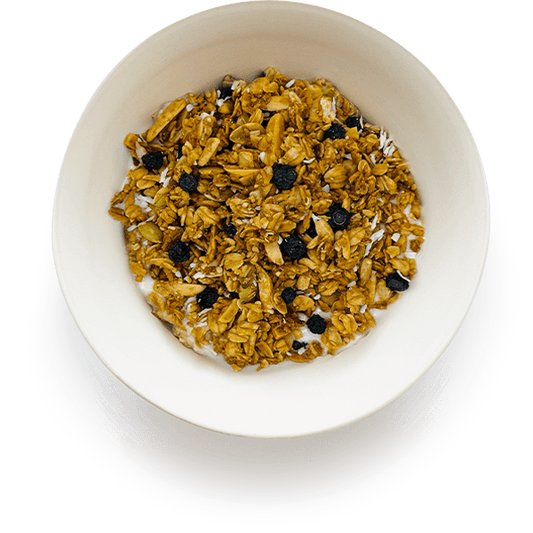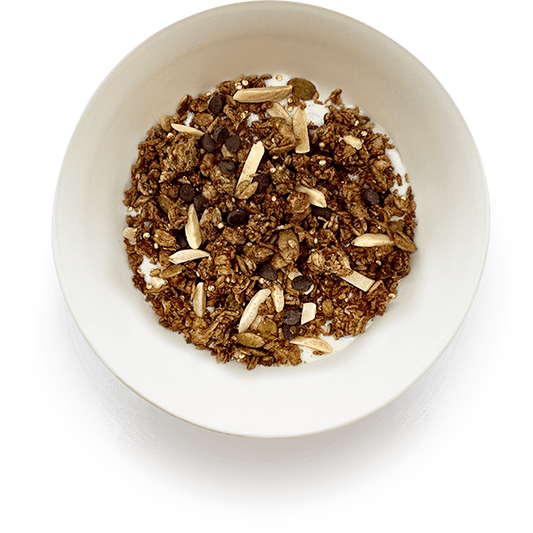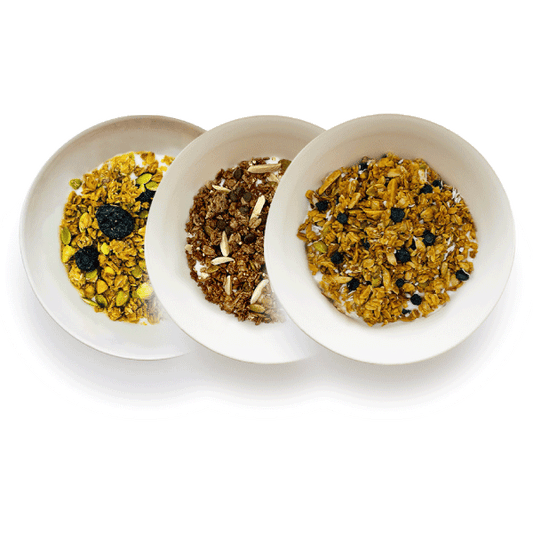The Importance of Organic Foods in a Plant-Based Diet
By FireRoad
Frequently Asked Questions
1. What are organic foods?
2. What are the health benefits of consuming organic foods?
3. How can I incorporate organic foods into my plant-based diet?
4. What certifications should I look for when buying organic foods?
5. What societal implications come from choosing organic foods?
In recent years, plant-based diets have gained tremendous popularity as individuals seek healthier lifestyles and environmentally-friendly choices. Among the various components that contribute to this dietary shift, the importance of organic foods cannot be overstated. In this article, we will explore the health benefits of incorporating organic foods in a plant-based diet, including how they can enhance dishes like a Tex-Mex breakfast bowl and broader implications for your overall health and well-being. Let’s delve into the rich world of organic ingredients and their many advantages!
What Are Organic Foods?
Organic foods are grown and processed without the use of synthetic fertilizers, pesticides, or genetically modified organisms (GMOs). In essence, organic farming emphasizes a natural approach to food production, focusing on health, sustainability, and biodiversity. This farming practice helps to improve soil quality and promote ecosystems that can thrive over time. Choosing organic foods is not merely a trend; it represents a commitment to health and environmental responsibility.
The Health Benefits of Organic Foods
When we choose to eat organic foods, we inadvertently enhance our nutrition and intake of essential nutrients. Below are several compelling reasons to make organic foods a staple in your plant-based diet:
Rich in Nutrients
Organic fruits and vegetables generally contain higher amounts of vitamins, minerals, and antioxidants compared to their conventionally grown counterparts. Studies suggest that organic produce is richer in certain nutrients, which play an essential role in protecting our body from diseases. For instance, when preparing a delicious Tex-Mex breakfast bowl, incorporating organic tomatoes, avocados, and peppers not only boosts flavor but also packs a nutritional punch.
Free from Harmful Chemicals
One of the primary advantages of consuming organic foods is the avoidance of harmful chemicals. Conventional farming often utilizes toxic pesticides that can remain on produce, entering our bodies over time. By opting for organic ingredients, you reduce your exposure to these harmful substances. This is particularly important for individuals seeking a healthy lifestyle, as a diet free from harmful chemicals can enhance overall well-being.
Better Taste
Many people who have switched to organic foods swear by the superior taste of organic produce. The absence of harmful chemicals and the natural farming methods allow the natural flavors to shine. A Tex-Mex breakfast bowl made with organic ingredients will not only be healthier but will also be bursting with flavor—making meals both enjoyable and nutritious.
The Environmental Advantages of Organic Farming
Beyond the personal health benefits, choosing organic foods has far-reaching implications for our environment:
Sustainable Practices
Organic farming promotes sustainable practices that benefit the environment. Farmers are encouraged to rotate crops and use cover crops to maintain soil fertility, minimizing erosion and supporting biodiversity. This holistic approach creates healthier ecosystems that can support various wildlife, contrasting sharply with the monoculture systems often used in conventional farming.
Reduction of Carbon Footprint
Choosing organic foods can also contribute to a reduced carbon footprint. Organic farms typically use less energy and produce fewer greenhouse gases than conventional farms. By supporting organic agriculture, you are not just contributing to your health but also taking part in a global movement toward sustainable farming practices.
Integrating Organic Foods Into Your Plant-Based Diet
Transitioning to an organic-based diet may seem overwhelming, but with some thoughtful planning, it’s highly achievable. Here are some simple tips to incorporate organic foods into your plant-based lifestyle:
Shop Locally
Many local farmers' markets offer organic produce at competitive prices. Visiting these markets not only supports local economies but also ensures that you are sourcing fresh, seasonal ingredients. Plus, speaking directly with farmers can provide insight into their growing practices, ensuring that you’re making informed choices. A fresh organic avocado from a local market can be the perfect topping for your hearty Tex-Mex breakfast bowl!
Prioritize the Dirty Dozen
The EWG's (Environmental Working Group) Dirty Dozen list includes produce that typically contains the highest levels of pesticide residues. Prioritizing these items when buying organic can maximize your health benefits. Essentials such as strawberries, spinach, and kale are prime candidates when focusing on organic buying.
Culinary Creativity with Organic Ingredients
Cooking with organic foods can inspire culinary creativity! Here are some delicious ideas for integrating organic ingredients into your meals:
A Flavorful Tex-Mex Breakfast Bowl
Starting your day with a nourishing and energizing meal sets the tone for healthy choices throughout the day. A Tex-Mex breakfast bowl can be easily crafted with a variety of organic ingredients:
- Base: Use organic quinoa or brown rice.
- Veggies: Add organic black beans, corn, diced bell peppers, and onions.
- Toppings: Top with organic avocado, fresh cilantro, and a squeeze of lime.
- Extras: Consider adding organic salsa for an extra kick!
This delightful dish not only showcases the vibrant flavors of organic ingredients but also keeps you energized and ready to take on the day.
Understanding Certifications
When selecting organic foods, understanding certifications is essential. Here are some certifications to look for:
USDA Organic
The USDA Organic label is a well-recognized certification indicating that the product meets specific organic standards. This label ensures that the food has been produced without synthetic fertilizers, pesticides, or GMOs. It is a trustworthy mark of quality when shopping in stores.
Non-GMO Project Verified
Though not all organic foods carry the Non-GMO label, it’s beneficial to seek out products that are Non-GMO Project Verified. This ensures that the food does not contain genetically modified organisms. Eating foods free from GMOs complements the idea of a natural and healthy lifestyle.
The Impact on Personal Health
Choosing organic foods as part of a plant-based diet can lead to a multitude of health advantages. Here are some effects you may experience:
Improved Digestion
A diet rich in organic fruits, vegetables, whole grains, and legumes can significantly enhance digestive health. Consuming these foods provides essential fiber, promoting regular bowel movements and reducing the risk of digestive issues.
Stronger Immune System
Organic foods are often packed with nutrients that can bolster your immune system. Antioxidants found in organic fruits and vegetables help combat free radicals, increasing resilience against infections and chronic diseases.
Boost in Energy Levels
By incorporating organic foods into your diet, you provide your body with clean energy sources free from harmful chemicals. This can result in improved energy levels, better focus, and enhanced physical performance—great for those early mornings when you're preparing that energizing Tex-Mex breakfast bowl!
Societal Implications of Choosing Organic
When you choose organic, you are contributing to a larger global shift in how food is produced and consumed. Here are two crucial aspects of this movement:
Support for Local Economies
Investing in organic foods often supports local farmers and communities, fostering economic sustainability. By prioritizing organic products from local producers, you actively contribute to maintaining job opportunities and empowering local economies.
Encouraging Biodiversity
Organic farming encourages biodiversity, which is crucial for a healthy environment. By avoiding monoculture practices common in conventional agriculture, organic farming allows various crops to thrive, thereby maintaining soil health and reducing the risk of disease. You are not just participating in your health journey, but also supporting the planet’s ecological balance.
Join the Organic Revolution!
Incorporating organic foods into a plant-based diet is not just a dietary choice but a holistic lifestyle approach that benefits your health and the environment. By making conscious decisions to choose organic ingredients, you can enjoy superior taste, boosted nutrition, and a sense of responsibility towards our planet. As you enjoy a vibrant Tex-Mex breakfast bowl crafted from organic ingredients, remember that every bite is a step towards a healthier you and a more sustainable world. Embrace the flavors, nutrients, and ethos of organic foods, and be part of the organic revolution today!











